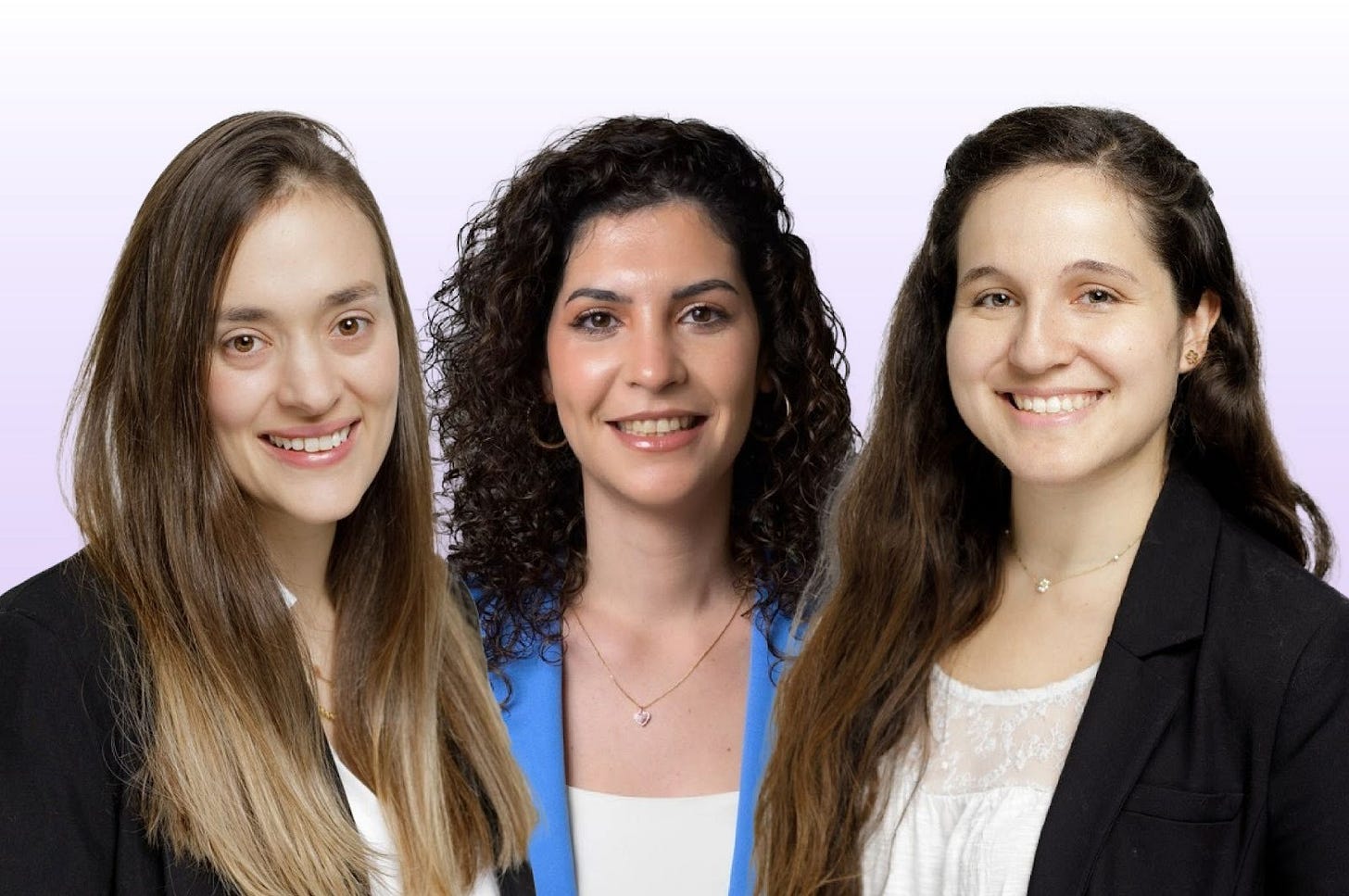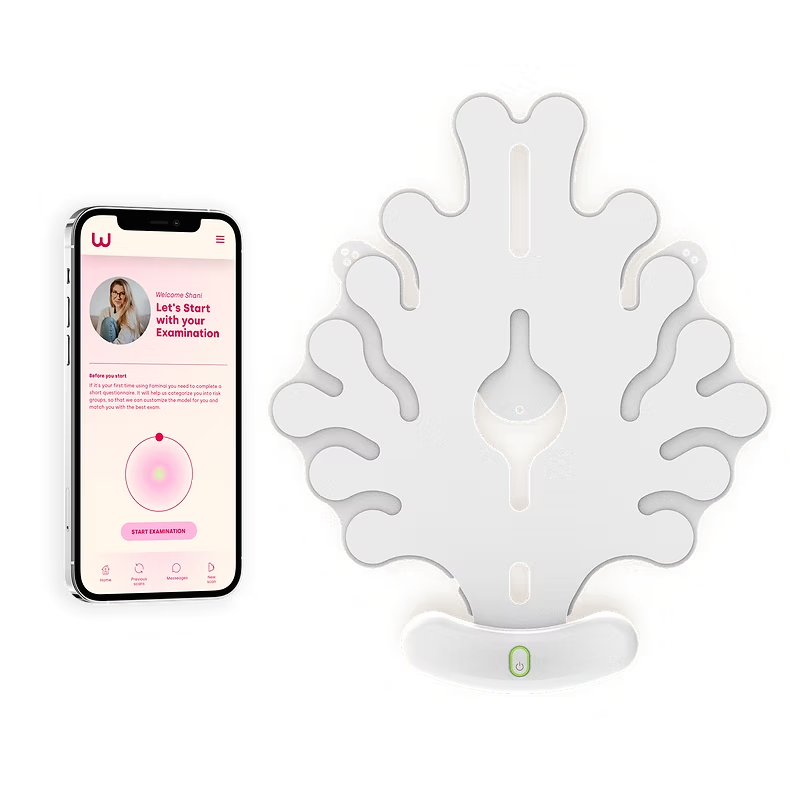From ER Shifts to a $1.65M Healthtech Grant: How Feminai Is Reinventing Breast Screening at Home
Feminai builds a home diagnostic tool for early breast cancer detection - but it’s not just the product that breaks the mold. The way the company operates redefines what startup life can look like.
Most startups don’t start this way. Feminai wasn’t born in a boardroom or inside a startup accelerator, it came to life in the blurry spaces between hospital shifts, in hallway conversations outside the ER, and in 20-minute WhatsApp calls at 11PM or 6AM - whenever co-founders Dr. Karny Ilan, Shani Klein, and Gal Yanuka could catch a breath to solve a problem, or just vent about how broken breast screening still is.
Too many women skip screenings. Others simply can’t afford the time, the travel, or the discomfort. And even those who do make it to the clinic are often diagnosed too late. This team set out to change that - not just by building a more accessible product, but by rethinking how the system should work. And in doing so, they quietly, yet radically, challenged many of the assumptions the startup world tends to take for granted.

From Real Patients to Real Demand
When most startups talk about “getting out of the building”, they usually mean launching fast and tweaking as they go. Feminai chose a different path - Long before building a prototype or writing a single line of code, the founders asked a more fundamental question: what would a real solution look like for the women who don’t show up for breast screenings at all?
The barriers weren’t technical, they were personal, cultural, and logistical. Women who live far from screening centers. Women who can’t afford to miss work. Women who feel unsafe or uncomfortable with existing procedures. Instead of forcing a solution into those constraints, the team built around them. What emerged was a radiation-free, wearable screening kit designed for home use: private, comfortable, and simple. Not to replace hospitals, but to reach the women who never make it there in the first place.
Early clinical trials at Sheba Medical Center showed strong results: 96% sensitivity and 98% negative predictive value. Numbers that come remarkably close to hospital-grade mammography.
The biggest shift happened inside the team. Dr. Karny Ilan, still practicing at Sheba, stepped into the CEO role, leading fundraising, managing regulatory strategy, and building partnerships between ER shifts. Shani Klein, CTO, leads machine learning development. Gal Yanuka, CPO, oversees hardware and product integration. Their seed round closed during the Swords of Iron war, between Zoom calls, reserve duty, and late-night shifts. It’s not your typical startup timeline, but then again, this was never meant to be a typical startup.

Rewriting the Rules of Startup Culture
At Feminai there are no all-hands meetings. No open office hours. No illusion of “business as usual”. With the CEO often working hospital shifts, communication happens differently: 20-minute WhatsApp calls between rounds, decisions delivered in voice notes, shared Google Docs instead of whiteboards. It’s not chaos, it’s intentional. A flexible rhythm shaped by real-life constraints, where leadership isn’t always physically present, but the mission stays tightly aligned.
“It’s not about always being available or flying to every investor meeting”, says Karny. “That’s not the culture we’re building”. They don’t pretend to run a 24/7 operation. They design around constraints: parenting, medicine, military duty. These aren’t disruptions but part of the model. Life doesn’t pause for startups, so they don’t ask it to.
And somehow, it works. This model forces clarity, builds trust, and creates a kind of resilience that’s rare in early-stage companies. What emerges isn’t just a more flexible startup, it’s a sharper, more focused one that knows exactly what it’s here to do: close a global health gap for women, with tools that fit their lives, not just their clinics.
Founders, Take Notes
Don’t wait for the “right moment” - Feminai launched during hospital shifts, reserve duty, and nap times. The perfect time rarely shows up.
Validate before you build - especially in healthtech where lives are on the line. Talk to users, solve their actual problem.
Culture beats polish - no office, no fancy deck, just a team that trusts each other, moves fast, and gets things done.
Split roles by strength - a practicing doctor can fundraise, lead product, and still run an ER. Titles matter less than capability
Use what you’ve got - WhatsApp voice notes, Zoom from the car, 6AM syncs before kindergarten drop-off. If it works, it works.
About Feminai
Feminai is a women-led healthtech startup developing a radiation-free, wearable kit for early breast cancer detection at home. After promising clinical results, the team is preparing for FDA trials in the US - and exploring ways to adapt their technology to other underserved areas in women’s health. Their innovative approach recently earned them a 1.65M NIS grant from the Israel Innovation Authority.


